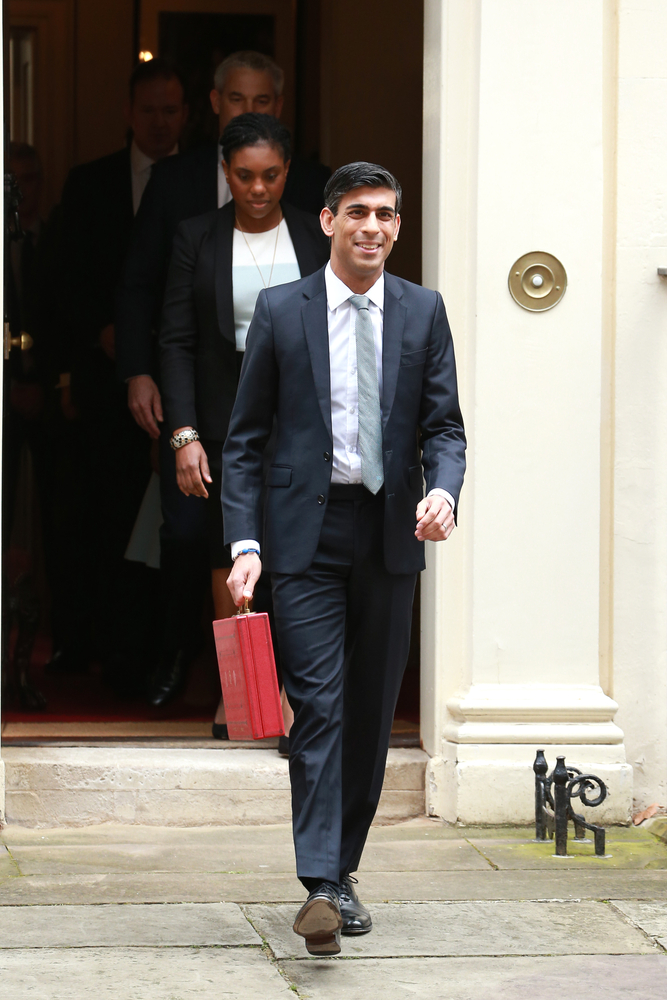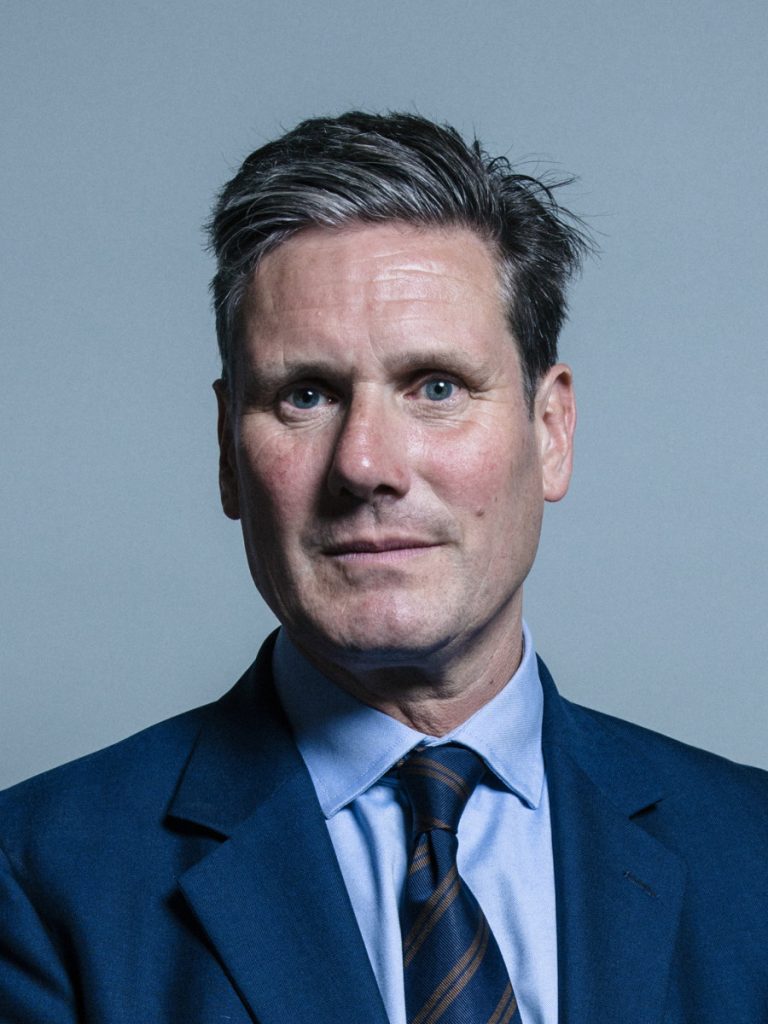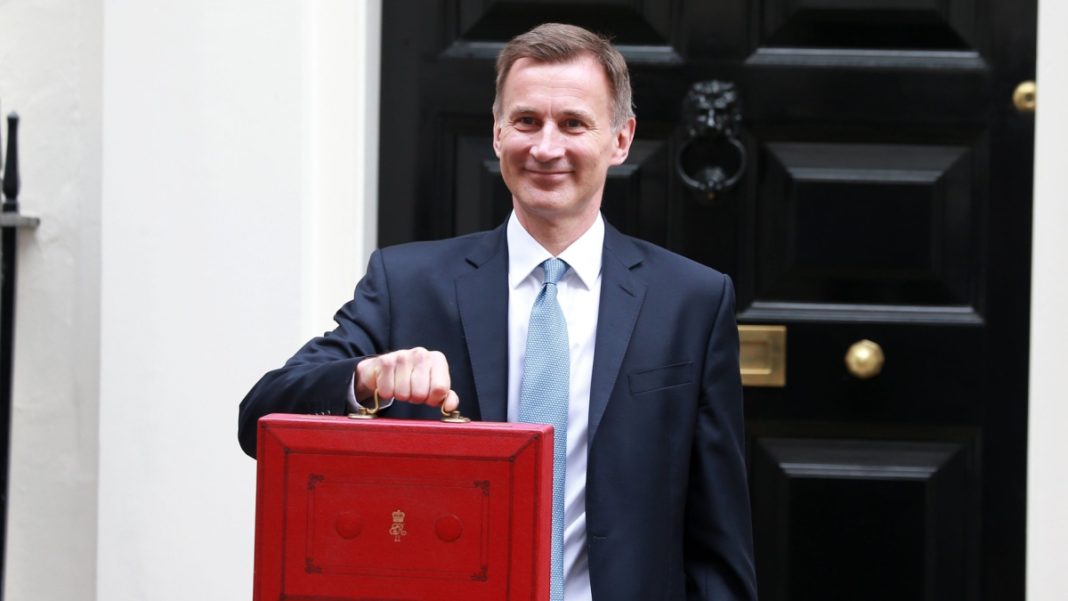Taxation was the main talking point of Jeremy Hunt’s budget announcement today and has unsurprisingly dominated much of the news coverage of the UK Spring Budget, but tech did also get a brief mention.
During Hunt’s hour-long speech in the House of Commons, in between his jibes at the opposition and choruses of both praise and disapproval from MPs, it was possible to discern some information about the UK government’s continued ambitions for tech.
Turning the UK into a leading international tech hub and maintaining this leadership position has been an outspoken objective of the current government under the administration of PM Rishi Sunak and Hunt, Chancellor of the Exchequer.

Addressing MPs today, Hunt reiterated the government’s rationale for wanting to boost the UK’s tech sector. He explained that the government believes ‘the most powerful way to get investment is to support our most innovative industries’.
“Outside the US we have the most respected universities, the biggest financial services sector and the largest tech ecosystem in Europe,” he continued.
“We have doubled the AI startups anywhere in Europe, doubled the venture capital investments in the tech economy, now double the size of Germany and three times the size of France. We’re on track to become the world’s next Silicon Valley.”
The government’s hope for long-term growth, with regards to tech, is for entrepreneurs in this sector ‘not just to start here, but to stay here’. Hunt added that this includes hope for tech firms to stay in the UK for stock market listings.
To encourage this, the Chancellor is hedging his bets on unlocking ‘more pension fund capital’ to build on the Edinburgh and Mansion House reforms and foster greater tech investment and development.
“We’ll give new powers to the Pensions Regulator and Financial Conduct Authority to ensure better value from defined contribution schemes,” Hunt continued.
“By judging performance on overall returns not cost. We’ll make sure there are vehicles to make it easier for pension funds to invest in UK growth opportunities.”
The Conservative Party has been governing the UK for 13 straight years now – although not all under the same leader, with David Cameron, Theresa May, Boris Johnson, Liz Truss and now Sunak all holding the top job of Prime Minister.

Whilst the government’s leadership has not been consistent, Hunt is confident that its approach to business investment has been. The UK has the third highest investment behind the US and China, the Chancellor was keen to emphasise.
He added that this 13 year governance has seen business investment rise from 3.3% of UK GDP under the previous Labour administration to 9.3% under the Conservatives, projecting that this will rise to 10.6%.
International business interest in the UK was also a key area of Hunt’s speech. In particular, he pointed to the activities of big tech firms such as Google and Microsoft, which have set up multi-billion pound data centres in Britain.
Hunt attributed this to the government creating ‘the most attractive investment tax regime of any large European or G7 country’ via significant tax cuts for businesses, which he added had been welcomed by over ‘200 business leaders’.
All of this talk would make one think that the economy under the current government is booming, with tech and finance – and the fintech meeting point between the two – playing a key role. However, there is a topical elephant in the room.
Amidst one of the many choruses of cheers and jeers which peppered the Chancellor’s speech, a cry could be heard from one unknown MP.
“When are you going to mention the recession?” the MP yelled above the chaos.
The UK has been in a mild recession since Q4 last year, although this was only realised and announced last month. With 2024 likely to be an election year and Labour doing well in the polls, the opposition have been seizing on this fact – even mocking the Conservatives by way of meme on X ahead of Hunt’s speech today.
For obvious reasons, the UK economy going into a recession – albeit a minor one in comparison to others in living memory – is not good for fintech, or the consumers who use the various payments systems under development and on offer.
To get Britain’s growth back on track, and perhaps also to drum up some public support ahead of election time, Hunt’s flagship policy during today’s budget was a 2p cut in National Insurance, saving around £450 a year for the average worker.
This will likely ease financial burdens for many consumers, and with more money in their pockets we could expect more spending via various payment platforms.
On the other hand, the inflation rate of 4% is still double the Bank of England ideal rate of 2% and continues to bite into consumers spending abilities, although Hunt cited ongoing progress towards the 2% target.
Responding to the budget following Hunt’s speech, Labour Party leader Keir Starmer would criticise the government for adopting the highest tax rates in 70 years despite as well as the economy’s recession status.

The government’s policy of investing in tech – alongside many other policies it should be added, including most significantly tax cuts – has been a defining aspect of the government’s approach to economic growth, and a continuation of measures mapped out in last Autumn’s budget.
It is noticeable that Hunt highlighted the UK’s AI infrastructure as being significant, with the technology being widely adopted across a range of industries and with fintech playing a leading role in its development.
However, this is an election year after all and Labour has also been mapping out its fintech policies, also focusing heavily on AI adoption but also on Open Banking, the latter an area of financial innovation which has come to the forefront in recent years, particularly in Europe.
The recession may be one elephant in the room, but the potential election is arguably an even bigger one. Industry may not have much time to see what impacts Hunt’s budget will have, whether positive or negative, before new ones are introduced by a new government of a different political persuasion.























